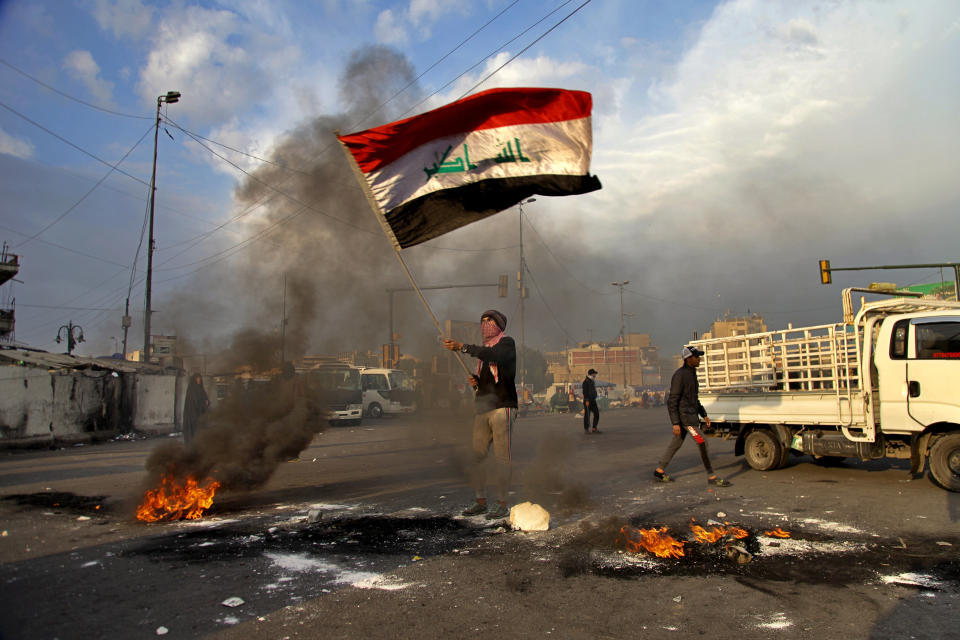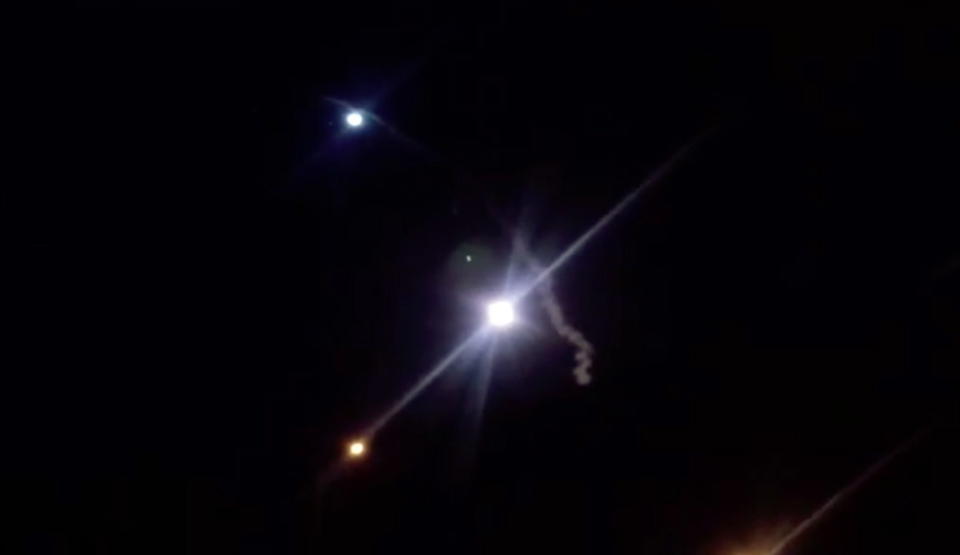The 'reason why there weren't any casualties' from the Iran missile strike revealed
No Americans or Iraqis were killed in missile strikes on Wednesday after they were alerted to the attacks prior to their launch.
Iran launched the attack at Iraqi bases housing American troops on Wednesday morning (local time).
Iraq’s Prime Minister Adil Abdul Mahdi said on Twitter on Thursday Iran officials had informed his government of the strikes, saying its “response to the assassination of the martyr Qasem Soleimani had begun or would begin shortly”.
After Iraq warned its civilians to stay away from certain military bases, its government then fed the information directly to the US, according to CNN.
Nick Robertson, a CNN correspondent, said the US military had “adequate warning to shelter from the attack.”

“I’ve been to al-Asad airbase. It’s vast and remote. Strikes there could find plenty of dead ground away from troop bunkers and would have little risk of civilian collateral killings,” he said.
Iran’s foreign minister Mohammad Javad Zarif said the country did not intend on starting a war, but wanted to defend itself against any aggression.
Following the attacks, early intelligence reports suggested Iran had actually sought to avoid US casualties to avoid drawing the US into further military conflict.
‘Look, we’re going to have to do this’
Speaking to Yahoo News Australia on Wednesday, Dr Ben Rich, Middle East expert from Curtin University, speculated about the possibility Iran had forewarned US officials about the impending missile attack.
“The question is did they, for instance, do what the Americans did and when they struck Syria the first time under Trump after the chemical weapons attacks back in 2017, which is essentially call ahead and say ‘look, we’re going to have to do this,’” he said.
“And then the Syrians and the Russians had to essentially evacuate their personnel when that occurred.”

‘Standing down’
US President Donald Trump said in a press conference on Thursday morning (AEST) “as long” as he is president “Iran will never be allowed to have a nuclear weapon”.
Trump signalled he would not retaliate militarily for Iran’s missile strikes on Iraqi bases housing US troops.

“Iran appears to be standing down,” Trump said. “Which is a good thing for all parties concerned and a very good thing for the world.”
'Blood and treasure': How a war between Iran and the US could unfold
'No survivors': Plane with 176 people on board crashes in Iran
In his nine-minute, televised address, Trump spoke of a robust US military with missiles that are “big, powerful, accurate, lethal and fast.”
But then he added: “We do not want to use it.”
Do you have a story tip? Email: newsroomau@yahoonews.com.
You can also follow us on Facebook, Instagram and Twitter and download the Yahoo News app from the App Store or Google Play.



